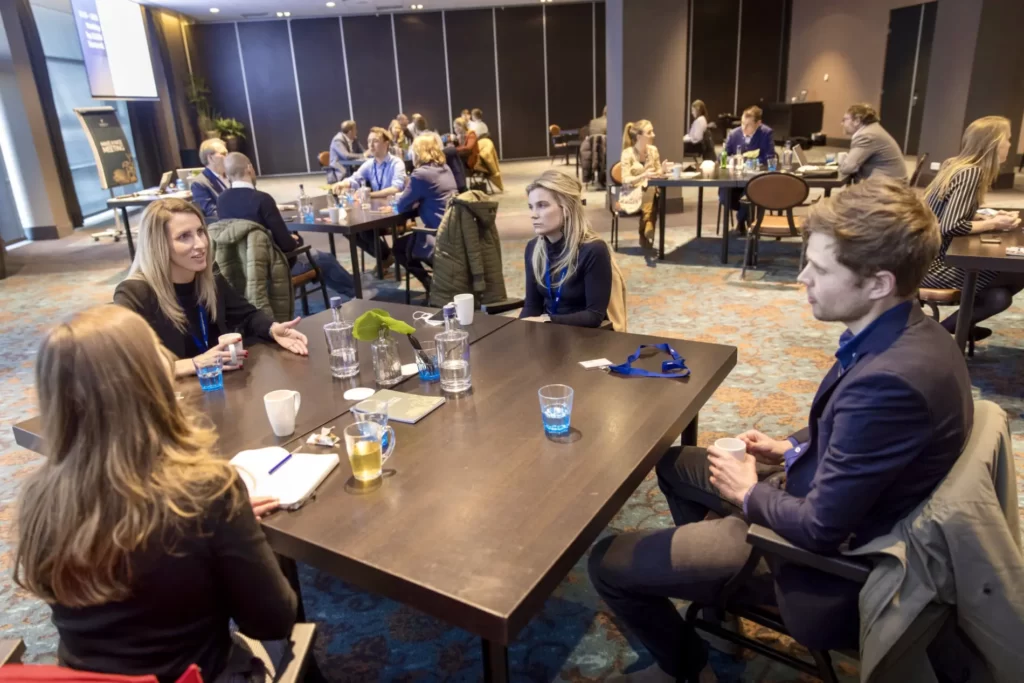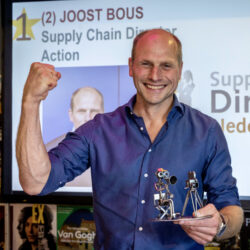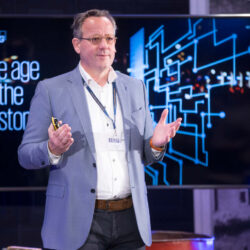Advice to high potentials in supply chain: beware of the generation gap
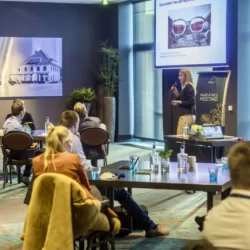
Today’s high potentials are looking for a job with purpose and want to make an impact – both within the organization and in society as a whole. That can create friction with their managers, who view the world differently. During a workshop for the Top 26 Supply Chain Talents in the Netherlands, Jennifer Dijkstra from DPA warned about this ‘perception gap’: “By no means all companies are equipped to offer what high potentials want.”
By Marcel te Lindert
In late 2021, Supply Chain Media published a list of 26 high potentials in the Dutch supply chain industry in collaboration with the secondment agency DPA. Earlier this year, a large number of those talented professionals came together in the Dutch town of Veenendaal for a session to discuss the issues that concern them. “We compiled our list in cooperation with your managers,” said Chief Trendwatcher Martijn Lofvers in his word of welcome to the attendees. “We asked them just one question: which high potentials inspire you? Their answers included your names.”
Perception gap
But were the supply chain high potentials still in their managers’ good books a few months after the survey? Jennifer Dijkstra, Business Unit Manager Supply Chain at DPA, spoke about a ‘perception gap’ between the different generations: “We’ve noticed that there is growing tension within numerous companies. Today’s high potentials are young, ambitious people and it’s sometimes difficult to keep them happy. Far from all employers are equipped to offer them what they want. They have a different view and perception of the world.”
Dijkstra has conducted her own research into the current generation of ‘millennials’. “Dividing people into generations is helpful in discovering what today’s high potentials want. What motivates them? What typifies them? This revealed that high potentials are ambitious, are keen to grow and want to have prospects, but also that they want to feel connected, enjoy collaborating and sometimes also have doubts,” said Dijkstra.
Making an impact
According to research, millennials are motivated by a good atmosphere at work (32%), meaningful work (30%) and personal and professional development (24%). While all employees are keen to have a good atmosphere and development opportunities, the desire for meaningful work is one thing that characterizes millennials. “They want to work for an organization that makes an impact. Millennials want to have both a societal impact and a personal impact; they want their work to make a difference. That’s much more important to them than to earlier generations.”
Managers tend to come from Generation X or the subsequent generation, the ‘pragmatists’. They tend to be down-to-earth, realistic and goal-oriented, whereas millennials seek purpose. “Imagine pairing up a high potential looking for purpose with a down-to-earth executive who doesn’t buy into that idea. That can cause friction – and it’s not the young professional’s fault, it’s purely because they are from a different generation. Be aware of the chance of such gaps occurring.”
Dialogue about future career
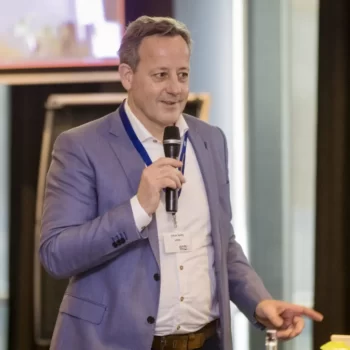 Dijkstra’s comments gave the young professionals food for thought. In groups, they discussed their own experiences of such gaps as well as supply chain trends and their personal and professional development. Johan Smits from KPMG (pictured) had another important piece of advice in that regard: start a dialogue with your manager about your future career. “I myself did that far too late, but when I later became a manager I entered into dialogue with high potentials. Where did they want to be in three or five years’ time? Which steps did they need to take to get there? That produced some great conversations.”
Dijkstra’s comments gave the young professionals food for thought. In groups, they discussed their own experiences of such gaps as well as supply chain trends and their personal and professional development. Johan Smits from KPMG (pictured) had another important piece of advice in that regard: start a dialogue with your manager about your future career. “I myself did that far too late, but when I later became a manager I entered into dialogue with high potentials. Where did they want to be in three or five years’ time? Which steps did they need to take to get there? That produced some great conversations.”
Smits also advised the young professionals to think carefully about the factors that motivate them. Some people are energized by being able to use their creativity, and others by working with colleagues. “Everyone has their own personal preferences and style. Get to know your own,” he said. Lofvers agreed: “Go in search of your ikigai, which is Japanese for ‘reason to live’. What do you love? What are you good at? What do you get paid for? And what does the world need? Find the answers to these four questions.”
Economic growth
Lofvers promised to facilitate interaction between the high potentials more often, such as during the inNOWvate Supply Chain Event on 19 May or in a monthly online get-together. He also urged them to seize their opportunities: “We are at the beginning of Kondratieff’s sixth wave. That means a 20-year period of tremendous economic growth. The business world will change dramatically. Many companies with old business models will fall by the wayside, creating opportunities for new companies with new business models. High potentials can ride the wave. The fact that they have no experience is an advantage, because experience just weighs you down.”
